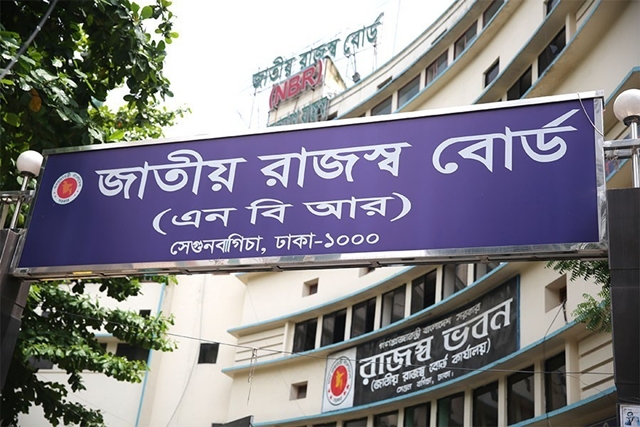SAM
Published:2019-11-13 00:00:16 BdST
NBR amends electronic seal and lock rules
FT ONLINE
National Board of Revenue (NBR) has amended the 'electronic seal and lock rules' to widen its coverage for transportation of export-import goods at all customs houses.
With the amendments, the rules will be applicable for all containers, cargoes, covered vans, trucks, railway wagons, cargo vessel hatches.
The e-tracking system will be applicable for both-way transportation of export-import goods, transit and transshipment products between port customs and other customs stations, economic zones and export processing zones.
Customs wing of the revenue board, in a recent regulatory order, amended the Electronic Seal and Lock Service Rules 2018 to widen the coverage.
Earlier, the rule was applicable only for containers that are bound to Chattogram port from private inland container depots (ICDs) and containers bound to ICDs from Chattogram port.
A senior customs member said the NBR has amended the rule to make it applicable for movements of all export-import goods in all ports and customs stations.
However, the board is yet to decide whether the e-tracking system for all customs houses will be made mandatory or optional.
Customs officials said the NBR will require issuing a special order for making the technology mandatory.
A number of issues will have to be considered on the e-tracking system including traders' opinions and preparedness of service providers.
Former president of the Federation of Bangladesh Chambers of Commerce and Industry (FBCCI) Md Shafiul Islam strongly protested the rules terming it as a burden for exporters.
"Such an e-tracking system will increase the cost of the exporters," he said.
Exporters are already facing negative growth with various challenges, he said.
Such trade barriers would facilitate the competitor countries like Vietnam to grab Bangladesh's export market, he added.
"Why the exporters will carry the cost of the e-tracking services? Whether the service providing company will give any guarantee in case of any damage of the products?" he posed the question.
According to the rules, exporters and importers will have to pay Tk 600 per container or covered van or truck or other modes of transport for the first 48 hours and then Tk 50 for every additional hour for the service.
Earlier, the FBCCI and Bangladesh Garment Manufacturers and Exporters Association (BGMEA) opposed the rules in various forums.
The US-based Alif Corporation, owned by a Bangladeshi expatriate, proposed the NBR for introducing the technology first in 2014.
The company got the licence from the revenue board for providing the service based on the build-own-operate method.
However, no traders have used the technology over the last one year and the licence period of the company already expired.
The FBCCI leader said such costly and time-consuming technology is irrational as exporters and importers are using various low-cost technologies to secure the containers.
Customs officials said the NBR has amended rules to make it aligned with the transit and transshipment regulations between India and Bangladesh.
The standard operating procedures of transit and transshipment have a provision of using an electronic seal and lock technology, they said.
Unauthorized use or reproduction of The Finance Today content for commercial purposes is strictly prohibited.


